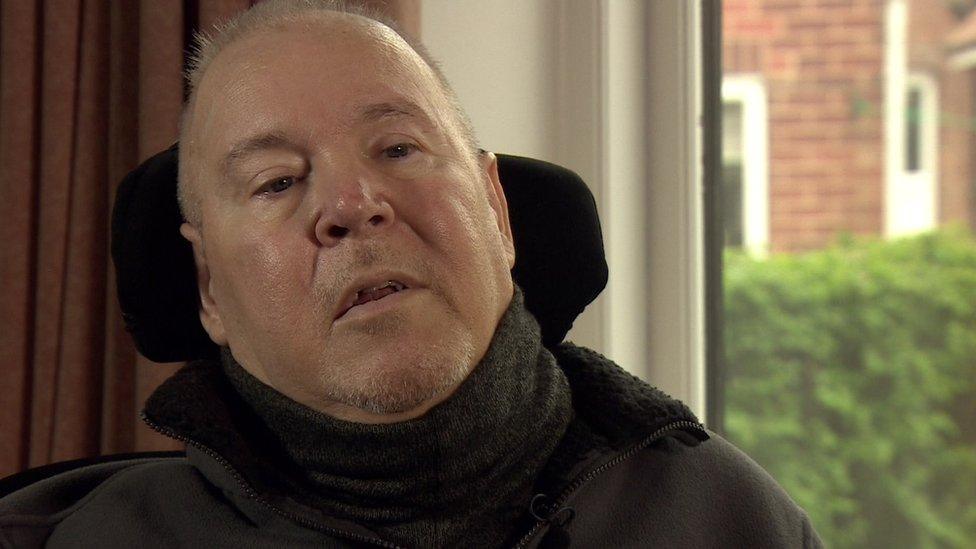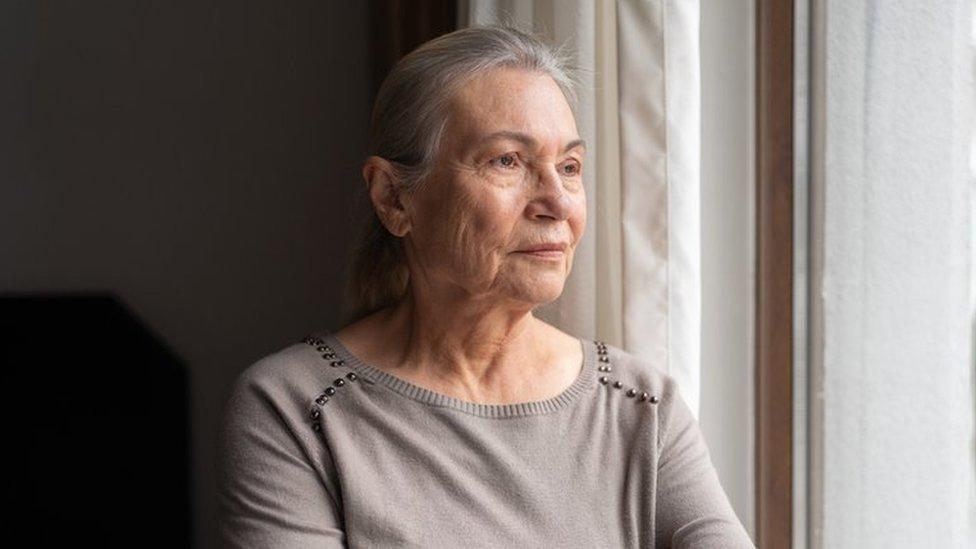Vincent Lambert: Life support must resume after court reverses ruling
- Published
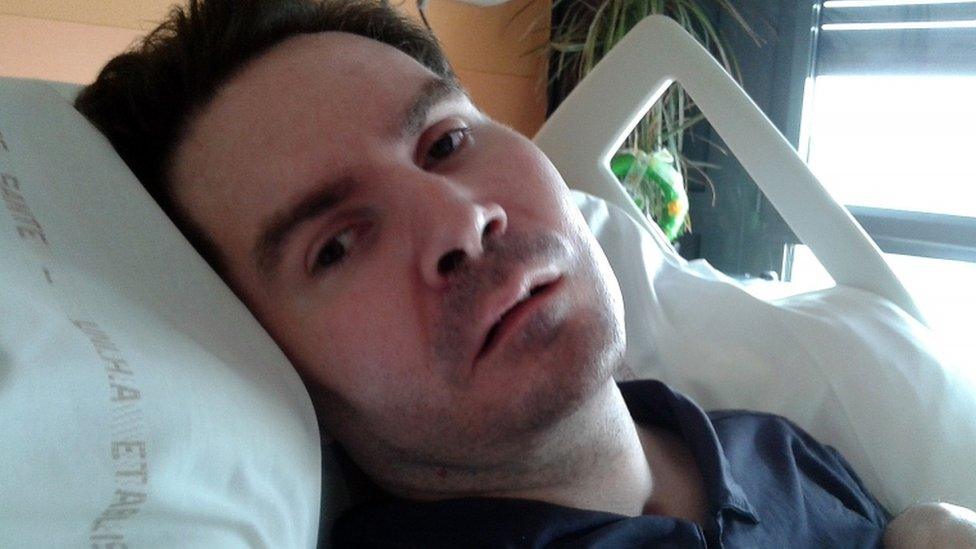
Vincent Lambert, seen here in 2015, suffered irreversible brain damage but is not on a respirator
A French court has ordered doctors to resume life support for a quadriplegic man whose case has become central to the right-to-die debate in France.
Doctors had begun switching off life support for Vincent Lambert, 42, on Monday, before the court order.
Mr Lambert has been in a vegetative state since a 2008 motorcycle accident.
His care has divided the country and his family. His wife has called for his feeding tubes to be withdrawn; his parents insist he be kept alive.
Mr Lambert's mother Viviane, 73, hailed the latest ruling as "a very big victory" in her struggle to maintain her son's life support.
"They are going to restore nutrition and give him drink. For once I am proud of the courts," she said.
Doctors had earlier on Monday halted the nutrition and hydration Lambert receives, in line with the wishes of his wife and other relatives.
An earlier judicial ruling had said Mr Lambert should be removed from life support and that process had begun before Monday evening's dramatic reversal by the Paris Court of Appeal.
How did we get here?
The case has been the subject of judicial rulings, going as far as the European Court of Human Rights (ECHR).
Europe's top court upheld the decision of a French court to allow Mr Lambert to be taken off life support. However, doctors then did not carry out the plan - amid security concerns raised by Mr Lambert's father, who feared there was a plan to kidnap him.
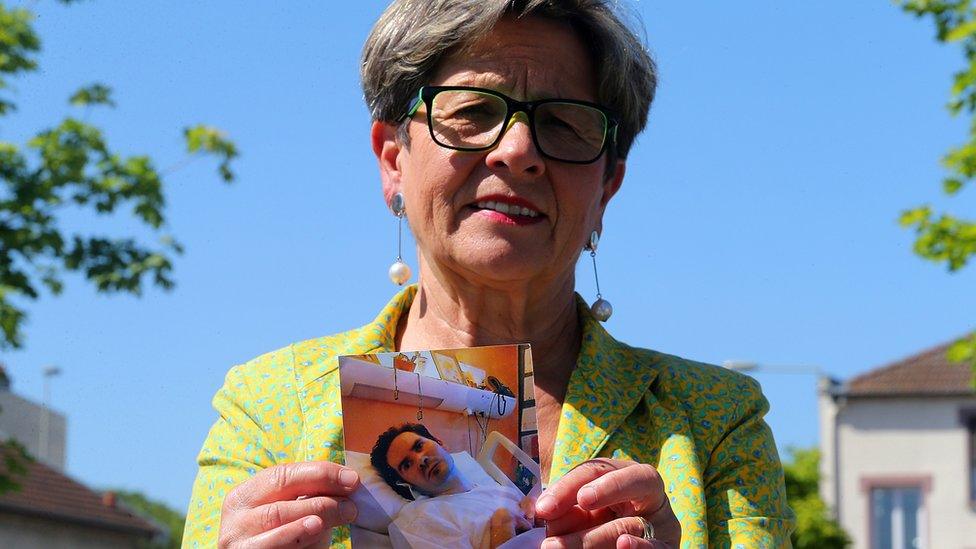
Viviane Lambert has fought for her son's life to continue
The high-profile case has proved extremely divisive in France, where euthanasia is illegal but doctors are allowed to put terminally ill patients into deep sedation.
Why did the case go to court?
Mr Lambert is a former psychiatric nurse who has been in a quadriplegic state of paralysis, with minimal consciousness, since his accident.
He has been kept alive with food and water delivered through a gastric tube. He can breathe without artificial aid and occasionally opens his eyes.
After several years of trying to improve his condition, Mr Lambert's medical team recommended in 2013 that care should stop, in consultation with his wife Rachel.
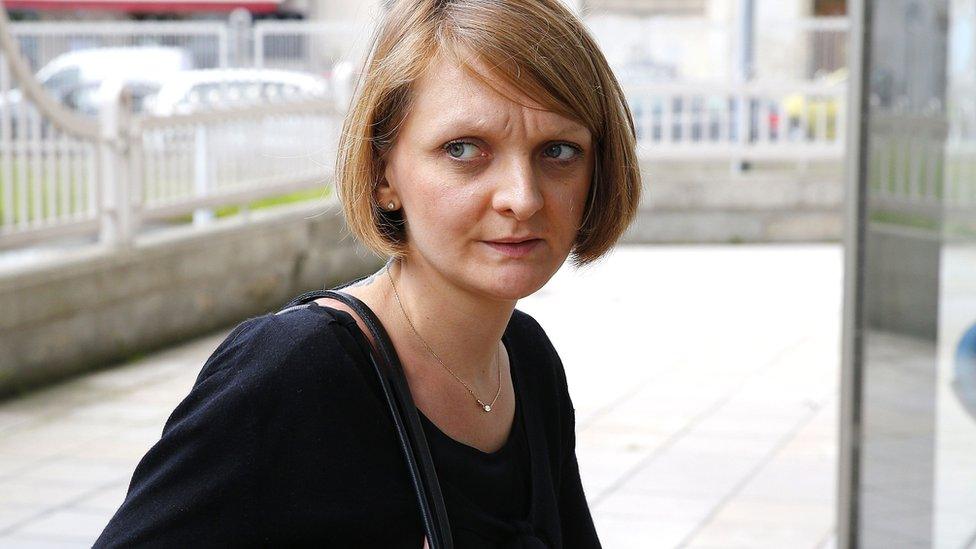
Rachel Lambert insists her husband would "never have wanted to be kept in this state"
Because the rest of his family were not consulted, the decision was challenged and a lengthy legal battle over his care began.
His wife, six of his siblings and his nephew favour artificial life-support being ended - but his devoutly Roman Catholic parents, Pierre and Viviane, and two other siblings have remained adamant it should continue.
At the height of the row, in 2015, Mr Lambert's parents released a video via a conservative Catholic website on YouTube which they said showed him reacting to family members.
Doctors involved in his care complained that the video was misleading about his condition and manipulative to the wider public.
Calls for intervention
The UN's Committee on the Rights of Persons with Disabilities had called on France to intervene and delay the move to withdraw the life support while they investigated his case further. France's ministry of health said it was not bound by the committee.
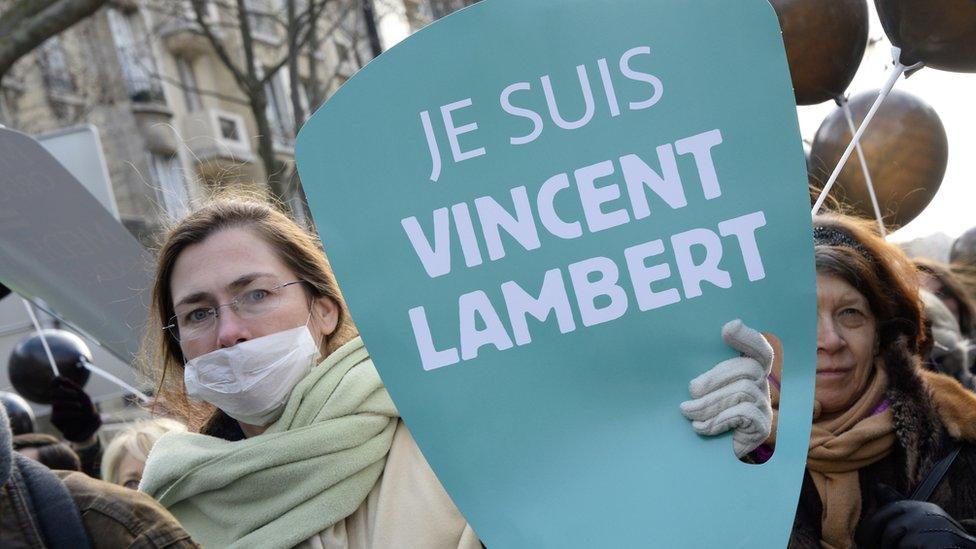
The case has become central to France's "right to die" debate
Minister Agnès Buzyn said at that point, before Monday's ruling, that "all legal appeals have been exhausted".
The European Court of Human Rights had rejected a further request on Monday by Mr Lambert's parents and siblings for the UN committee's calls to be observed.
The court said they "had submitted no new evidence such as to induce it to change its position" , externalon the matter.
In an open letter published over the weekend, Mr Lambert's parents asked President Emmanuel Macron for help.
"Mr President, Vincent Lambert will die without hydration in the week of 20 May if you do nothing , externaland you are the last and only one able to intervene," read the letter, signed by lawyers for family members opposed to ending the life support.
"In France, in 2019, no one should die of hunger and thirst."
Mr Macron rejected the calls to intervene, saying "the decision to stop treatment was taken after a constant dialogue between his doctors and his wife, who is his legal representative".
- Published28 April 2018
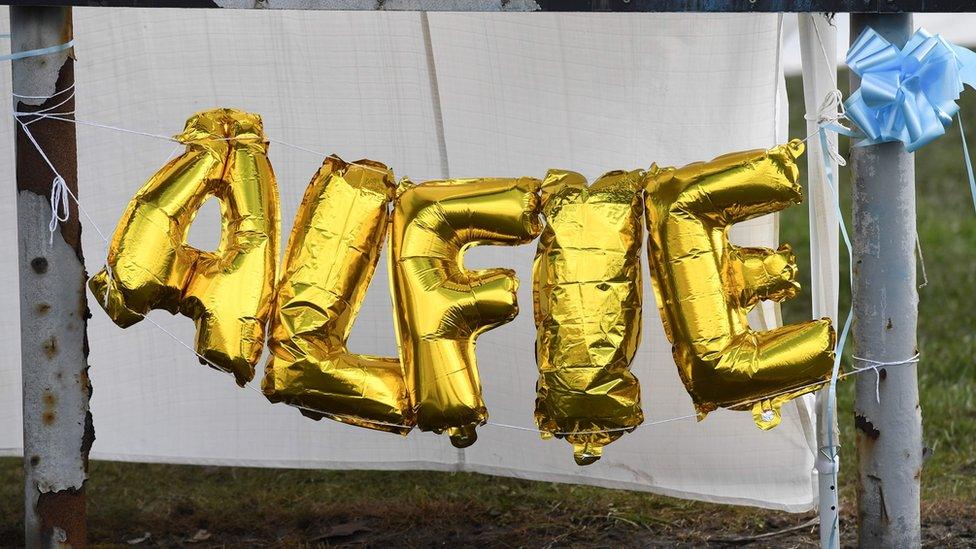
- Published3 October 2019
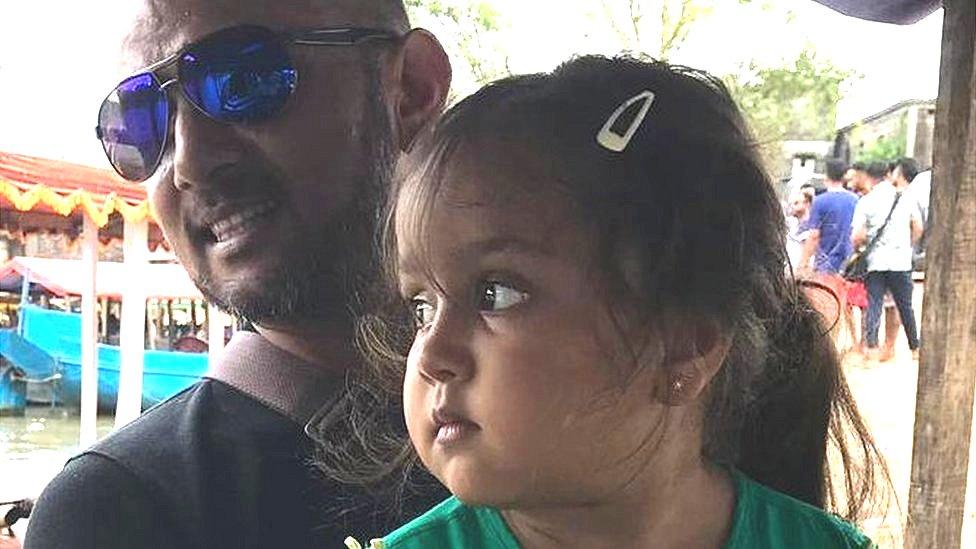
- Published7 May 2019
